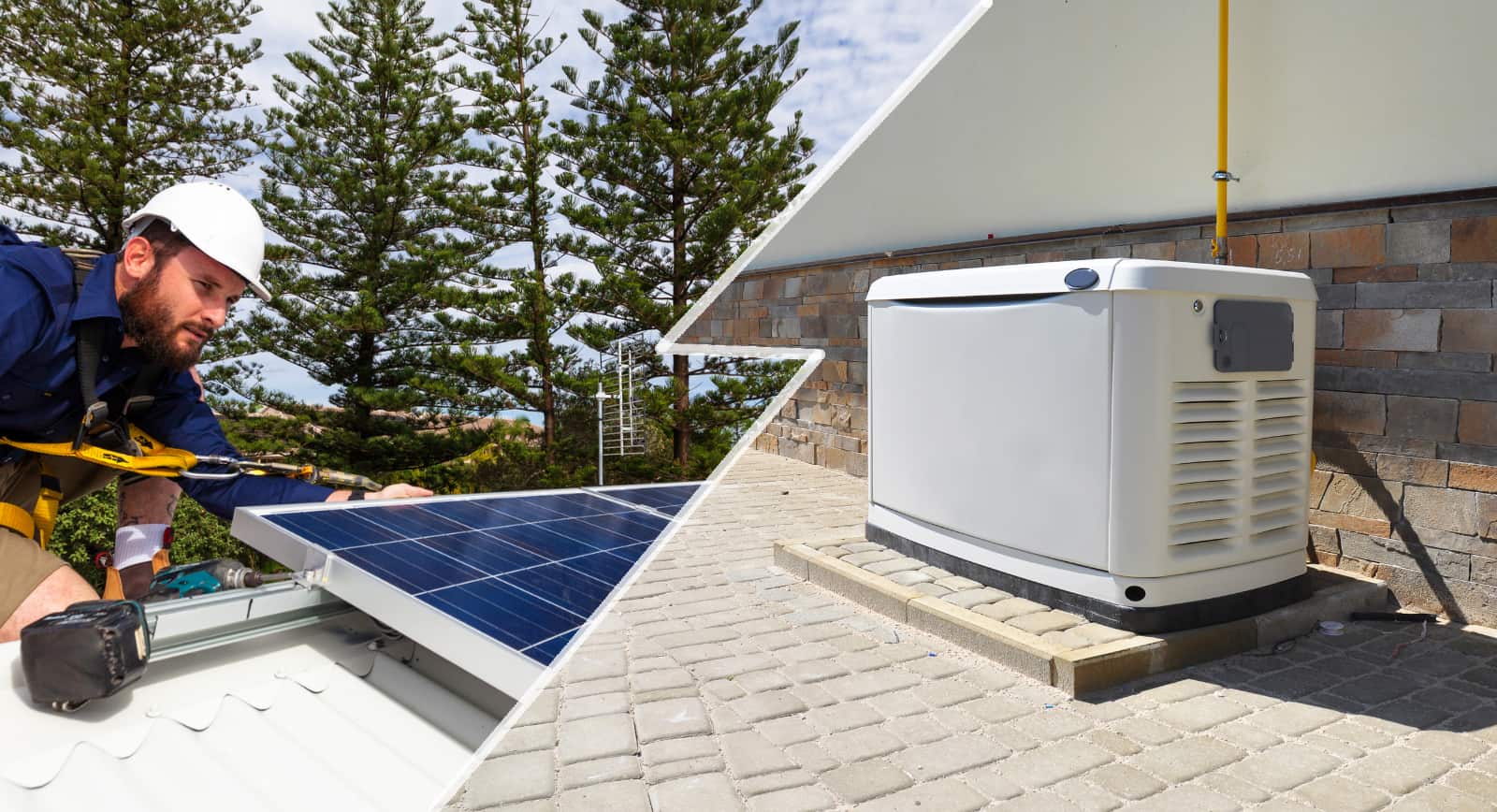
In today’s world, a reliable source of backup power has become a necessity for many homeowners. Whether it’s to keep the lights on during a blackout, power essential appliances, or maintain a comfortable living environment, having a backup generator can be a game-changer. When it comes to choosing the right generator solution, two primary options stand out: whole-home solar generators and portable generators. In this article, we’ll compare the advantages and disadvantages of each, helping homeowners make an informed decision based on their specific needs and preferences.
The Basics of Whole-Home Solar Generators
Whole-home solar generators, also known as solar backup systems, are designed to provide uninterrupted power to an entire household during grid outages. They operate by harnessing energy from the sun using photovoltaic (PV) solar panels. This energy is stored in batteries and can be used when the grid goes down, ensuring a continuous power supply without noise, emissions, or reliance on fossil fuels.
Advantages of Whole-Home Solar Generators
- Environmental Benefits: Whole-home solar generators are a clean and renewable energy source. They produce electricity without emitting greenhouse gases, making them an environmentally friendly choice that contributes to a greener future.
- Uninterrupted Power: Solar generators seamlessly switch to battery power during outages, ensuring continuous electricity supply without the need for manual intervention. This is particularly advantageous for homeowners looking for a reliable backup power solution.
- Long-Term Savings: While the upfront costs of installing a whole-home solar generator can be significant, they often pay for themselves over time. Reduced energy bills, potential tax incentives, and incentives from utilities can result in long-term savings.
Disadvantages of Whole-Home Solar Generators
- Higher Upfront Costs: The installation of a whole-home solar generator can involve significant upfront costs, including solar panels, batteries, and installation expenses. However, it’s essential to consider the long-term savings.
- Dependent on Weather: Solar generators rely on sunlight to recharge their batteries. During cloudy days or at night, their energy generation capacity may be limited. Adequate battery storage can mitigate this issue to some extent.
- Space and Mounting Requirements: Solar panels require sufficient space and suitable mounting options. Homes with limited roof space or shaded areas may face challenges in accommodating a solar generator.
The Basics of Portable Generators
Portable generators, on the other hand, are compact, mobile devices that provide on-demand electricity. They typically run on gasoline, propane, or diesel fuel and are capable of powering a variety of appliances and devices. Portable generators are versatile and can be used for a range of applications, from camping and outdoor events to emergency backup power at home.
Advantages of Portable Generators
- Versatility: Portable generators are highly versatile and can be used in various settings. They are suitable for camping trips, outdoor events, and emergency power needs, offering flexibility in how they are utilized.
- Immediate Availability: Portable generators are readily available and can be quickly deployed in emergencies. This makes them an ideal choice for homeowners who need a temporary power source in a pinch.
- Affordability: Portable generators tend to be more affordable upfront compared to whole-home solar generators. They offer a cost-effective solution for those with budget constraints.
Disadvantages of Portable Generators
- Noise and Emissions: Portable generators are known for their noise and emissions, primarily if they run on gasoline or diesel fuel. This can be a concern for those looking for a quieter and cleaner power source.
- Portable generators require regular maintenance, including oil changes, fuel storage, and engine maintenance. Neglecting maintenance can lead to performance issues and reduced reliability.
- Maintenance:
- Limited Capacity: Portable generators have a limited capacity and may not be able to power an entire household during extended outages. They are best suited for essential appliances and devices.
Choosing the Right Solution
The choice between a whole-home solar generator and a portable generator ultimately depends on individual needs and preferences. Here are some factors to consider when making the decision:
- Backup Power Requirements: Assess the critical appliances and devices you want to power during an outage. If you need uninterrupted power for your entire home, a whole-home solar generator may be the better choice.
- Environmental Concerns: Consider your environmental priorities. If reducing your carbon footprint and contributing to sustainability is essential to you, a whole-home solar generator aligns with these values.
- Budget: Evaluate your budget constraints. Portable generators are typically more affordable upfront, while whole-home solar generators offer long-term savings.
- Mobility vs. Reliability: Determine how often you need backup power on the go. If you require a portable solution for various activities, a portable generator is a suitable option. However, if uninterrupted power at home is a priority, a whole-home solar generator provides reliability.
Case Studies and User Experiences
One effective way to make an informed decision is by exploring real-life case studies and user experiences. Homeowners who have invested in either whole-home solar generators or portable generators can offer valuable insights into their performance, benefits, and limitations. Hearing from others who have faced similar choices can help you better understand which generator solution aligns with your unique situation.
Conclusion
Choosing the right backup power solution is a significant decision for homeowners. Whole-home solar generators and portable generators offer distinct advantages and disadvantages, catering to different needs and priorities. Whether you prioritize uninterrupted power, environmental sustainability, budget considerations, or versatility, there’s a generator solution that’s right for you. By carefully weighing the pros and cons and considering your specific requirements, you can make an informed choice that ensures peace of mind during power outages and emergencies.
Leave a Reply